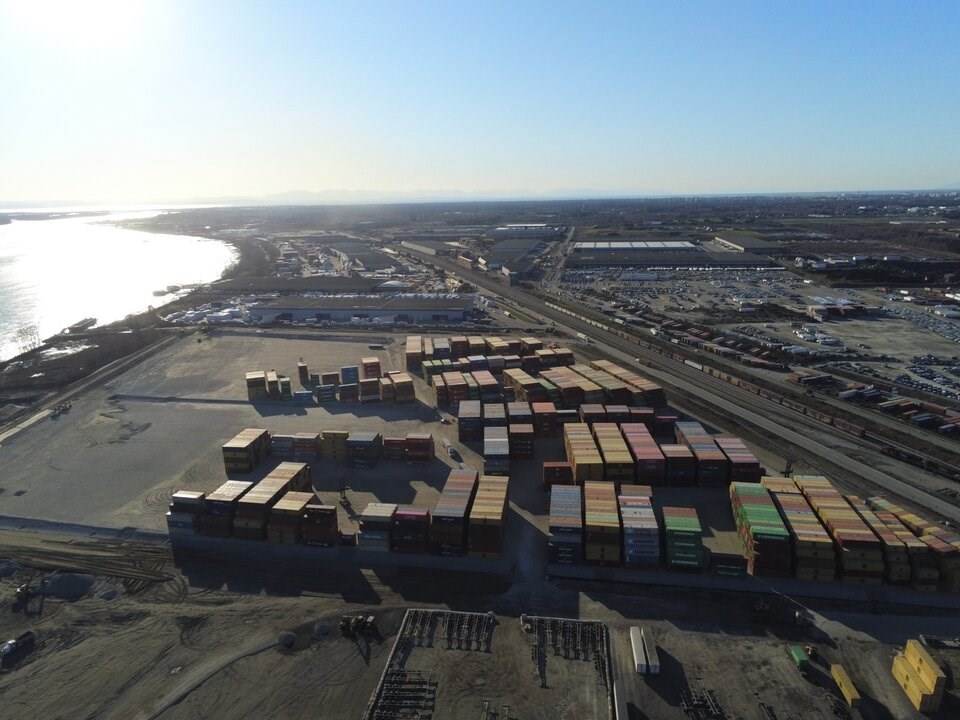It will take time to fully understand the implications of a landmark court ruling that appears to place Aboriginal title in British Columbia above standard private property rights.
But already, there’s a fierce political debate.
The B.C. Supreme Court ruled Friday that the Cowichan Tribes holds title over federal, city and private land in Richmond that it historically used as a fishing village. This title sits higher in the legal hierarchy than fee simple land rights of other current owners. The ruling could set a precedent that fundamentally changes the security of standard private property in B.C.
“This ruling just cracked open the door for your land title to mean nothing,” Opposition Conservative MLA Harman Banghu posted on social media.
“Allowing this decision to stand will only invite further conflict, deter economic investment, and place vital infrastructure at risk,” added Opposition Indigenous Relations critic Scott McInnis in a public letter to minister Spencer Chandra Herbert.
“The City of Richmond has already warned that as much as $100 billion in critical infrastructure could be thrown into legal uncertainty.”
The Conservatives were quick to send out a fundraising email attacking the NDP government’s aggressive reconciliation policies.
“As Conservatives, we believe private property rights are the foundation of our democracy and, without them, everything else crumbles,” read the party email.
“Please help us send a powerful message — that British Columbians will NEVER surrender their private property rights without a fight.”
The BC NDP government’s response was a cautious statement. “The province is reviewing the court’s ruling now to determine our next steps, as we consider an appeal,” said Attorney General Niki Sharma.
But you could read between the lines of the totally unsolicited accompanying statement by the premier.
“While the Attorney General reviews this decision and considers grounds for possible appeal, we will continue to seek resolution of this matter through negotiations with the nations involved outside of court,” read the statement attributed to Premier David Eby.
“But let me be clear: owning private property with clear title is key to borrowing for a mortgage, economic certainty, and the real estate market.
“We remain committed to protecting and upholding this foundation of business and personal predictability, and our provincial economy, for Indigenous and non-Indigenous people alike.”
Eby’s comments hit at the core of the fallout — that with most of British Columbia identified by First Nations as traditional territory, the court ruling could scare away not only the general public but businesses considering investing in the province.
If you can’t assure anyone they actually own the land they purchase, then very quickly British Columbia becomes a risky place to live and do business. All at a time the NDP is trying to grow the economy to dig itself out of a record-setting budget deficit.
Consider the lands the B.C. Supreme Court ruled upon in Richmond. They include a large portion of 1,846 acres, including City of Richmond property, an airport fuel line, private agricultural property and federally owned port land upon which there are warehouses operated by Amazon, Wayfair, UPS, Canadian Tire and Amazon. Major companies that now face significant uncertainty in British Columbia.
In court, B.C. tried to argue “the declaration would create significant uncertainty regarding the ownership of the land and invariably affect the rights of non-parties” and that “B.C. relies on the provisions of the LTA (Land Title Act) and submits that, regardless of any defect in the Crown grants from which they derive, the fee simple interests are valid.”
But B.C. Supreme Court Justice Barbara Young disagreed, outlining in an 863-page judgment that the fee simple interest in those lands “are defective and invalid” because they infringe on Aboriginal title, after the lands were unfairly taken away from the Cowichan Tribes by the Crown between 1871 and 1914.
Cowichan Tribes did not explicitly ask the court to overturn the private property ownership, and the court ruling didn’t order any particular settlement other than an 18-month period for governments to negotiate with the nations on the issue.
But Justice Young appeared to set a new precedent by calling Aboriginal title the “senior interest in land vis-a-vis the fee simple titles.”
“I agree that Aboriginal title is a prior and senior right to land,” she wrote.
“It is not an estate granted by the Crown, but rooted in prior occupation. It is constitutionally protected. The question of what remains of Aboriginal title after the granting of fee simple title to the same lands should be reversed. The proper question is: what remains of fee simple title after Aboriginal title is recognized in the same lands?”
It’s a delicate question the BC NDP government now has to answer. The implications for the province, and for the government’s political fortunes, are huge.
Rob Shaw has spent more than 17 years covering B.C. politics, now reporting for CHEK News and writing for The Orca/BIV. He is the co-author of the national bestselling book A Matter of Confidence, host of the weekly podcast Political Capital, and a regular guest on CBC Radio.
🚨New newsletter alert! Stay ahead of the curve in B.C. politics. Get expert political analysis delivered straight to your inbox, plus inside scoops and other stories from across the province. Sign up here for the Capital & Coast newsletter.





